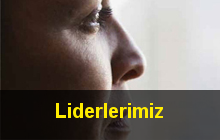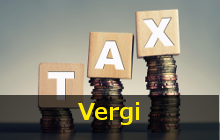
Conclusion hammered out for the VAT over exchange differences
Ender İnelli
The lack of a certainty concerning the taxation of exchange differences within the Value Added Tax (VAT) Law no.3065 has been causing controversy among the Revenue Administration and taxpayers.
The ongoing view of the Administration was on the course that the exchange rate differences were subject to VAT. Pursuant to the Administration’s view; during the transactions in which the price is defined in foreign currencies or as indexed to a foreign currency; in case the price is paid completely or in part following the date on which the taxable event occurs, since the exchange rate difference that emerged in favour of the seller is essentially in nature of a delay interest, it had to be taxed as an element of the tax base.
Judicial bodies have ruled within the decisions based on concrete events over the course of time that the exchange rate differences cannot be subject to value added tax. However, in the case filed with the request for the cancellation of the part of the VAT General Application Communiqué, which is based on the Communiqué of the present opinion of the Administration which regulates that the exchange differences should be subject to VAT, decision from the 4th Office of the State Council made a cold shower effect for the taxpayers. Yet the Chamber established a provision for the refusal of the cancellation through its decision dated 18.5.2017 no. E: 2014/4834 K: 2017/4605, and that has changed the situation towards the requirement for Exchange differences to be subject to VAT.
However, the Council of State Tax Appeals Chambers Board of Appeals which examined the aforementioned ruling of the 4th Office of the State Council reversed the judgement of the 4th Office of the State Council through its decision dated 13.12.2017 and no.E:2017/548 K:2017/606.
In this case, if no new legal arrangements are not made (regarding that the exchange differences should be included in the VAT assessment), it is unlikely that exchange rates will be subject to value added tax in the future.
This is the updated version of the article published in the Ekonomist magazine’s issue 2018/28 dated 15.07.2018.
Explanations in this article reflect the writer's personal view on the matter. EY and/or Kuzey YMM ve Bağımsız Denetim A.Ş. disclaim any responsibility in respect of the information and explanations in the article. Please be advised to first receive professional assistance from the related experts before initiating an application regarding a specific matter, since the legislation is changed frequently and is open to different interpretations.










 Başa Dön
Başa Dön